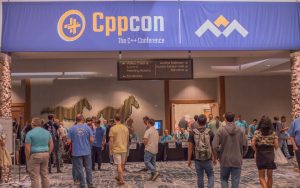HPX V1.7.1 released -- STE||AR Group
 The STE||AR Group has released V1.7.1 of HPX -- A C++ Standard library for parallelism and concurrency.
The STE||AR Group has released V1.7.1 of HPX -- A C++ Standard library for parallelism and concurrency.
HPX V1.7.1 Released
The newest version of HPX (V1.7.1) is now available for download! This release fixes minor problems found after the version 1.7.0. It fixes a bug in the internals of actions, adds a version check to the new Asio dependency, and slightly improves the performance of spinlocks among other minor changes. Importantly, the experimental hpx::execution::simdpar execution policy introduced in 1.7.0 was renamed to hpx::execution::par_simd for consistency with the standard parallel execution policies. While this is a breaking change in a patch release, we felt it was important to make this adaptation as soon as possible. The full list of improvements, fixes, and breaking changes can be found in the release notes.
HPX is a general purpose parallel C++ runtime system for applications of any scale. It implements all of the related facilities as defined by the C++ Standard. As of this writing, HPX provides one of the only widely available open-source implementation of the new C++17 parallel algorithms. Additionally, HPX implements functionalities proposed as part of the ongoing C++ standardization process, such as large parts of the features related parallelism and concurrency as specified by the upcoming C++20 Standard, the C++ Concurrency TS, Parallelism TS V2, data-parallel algorithms, executors, senders/receivers and many more. It also extends the existing C++ Standard APIs to the distributed case (e.g. compute clusters) and for heterogeneous systems (e.g. GPUs).
HPX seamlessly enables a new Asynchronous C++ Standard Programming Model that tends to improve the parallel efficiency of our applications and helps reducing complexities usually associated with parallelism and concurrency.

 Registration is now open for CppCon 2021, which starts on October 24 and will be held both in
Registration is now open for CppCon 2021, which starts on October 24 and will be held both in  Registration is now open for CppCon 2021, which starts on October 24 and will be held
Registration is now open for CppCon 2021, which starts on October 24 and will be held  A near-record number of talk submissions, with the large majority of speakers asking to deliver their talks in person, on-site in Aurora this October:
A near-record number of talk submissions, with the large majority of speakers asking to deliver their talks in person, on-site in Aurora this October: